- Home
- Douglas Clegg
Lights Out Page 4
Lights Out Read online
Page 4
After awhile, the water still running — Ruby loved her long showers — I went to our bedroom. I lay down in the dark and listened to the strange music outside.
I closed my eyes.
At some point in the night, I heard our front door slam shut and I got up and went downstairs, thinking someone might be breaking in.
The door wasn’t completely closed.
Someone had gone outside.
Who?
I peered out the front window, nearly trembling, thinking that I was doing something awful.
The parade was still going but the drums had stopped their incessant beating. I saw flashes of it: large bears walking on hind legs, a woman riding a chariot drawn by tigers, several children carrying sparklers, wide hoops being tossed in the air and caught again as they landed effortlessly in young men’s hands, the colorful robes, the elephants, the dancing women, the children playing cymbals and flutes, a long chain of dancers as the Smiths performed their rites all night through our village.
Among them, I caught a glimpse of my son.
Caleb was shirtless and had painted his chest in bright colors as he danced around with various young Smiths. Helen Cooper — with silk of various shades drawn over her — rode atop the elephant with others from our village, and there was Young Smith and Child Smith and Girl Smith and Middle-Age Smith, and then wonder of wonders, Paul Lockwood, too, part of this strange procession. Running after them, grabbing the hand of one of the Smith uncles, May Peters leapt up to a platform carried by several Smiths and began dancing. I worried about the idea of feuds and bad blood and thought of terrible futures for us, for the Smiths, for our village and its mostly placid surface.
I felt a sudden urge to join in the festivities, but I remained worried: what would become of us? Would the Smiths forgive those who did?
Or would we pay a heavy price for breaking this rule?
World-changing things, Dr. Knowles had said.
I couldn’t run out there. I couldn’t just go grab Caleb. I’d cause more of a problem, create a greater sacrilege.
Better just to leave it. Pretend you saw nothing.
These are the things I considered in my three a.m. weariness.
I wasn’t even sure if I might actually still be in bed dreaming; I had that half-awake, half-somewhere-else feeling the whole time.
When I went back to bed, I noticed that Ruby was not there, on the other side. There wasn’t even an indent in the pillow where her head would have rested.
Probably sleeping downstairs in the den, I thought. Sometimes she did. Sometimes I snored. Sometimes, she told me, she couldn’t stand my heat when we lay there together in the middle of the night.
I woke up later than usual.
I checked Caleb’s room. My unease turned to panic when I went downstairs and could not find my wife.
Damp footprints went from the bathroom to the front door, which was open wide to the street.
When I stepped out onto the front porch, I noticed several of the other houses across from us with their doors open wide, too.
By the end of the day, those left in town could only guess what happened.
“Dr. Knowles said we’d been warned,” Josh said, when I stopped by his hardware store. “And they shouldn’t have looked.”
“I doubt that’s all that happened,” I said. “I mean, we both looked. We didn’t join in.”
“I didn’t even think Helen so much as peeked,” he said. “She was going a little crazy last night. It was so hot. She got angry that any of us agreed to their terms. But I didn’t think…”
“Yeah, Ruby was sort of like that, too,” I said.
I imagined Ruby, watching from the bathroom window.
The long cold shower, walking out, dancing, being lifted up onto one of their chariots.
“Why them and not us?” Josh said on another day when we’d gotten used to what happened the night of the parade. “Why’d Helen run out there like a kid heading for the ice cream truck? I mean, I saw it happen and I knew — I just knew — that if I stepped outside the door, I’d end up with the Smiths, too.”
“Maybe they were missing something over here,” I said, looking down into my hands. “Who knows?”
And another afternoon, work day done, in the coffee shop:
“Don’t worry. They’ll come back,” Josh said, patting me on the shoulder. “I mean, living in Smithville? It’s not what they’re used to. The weather’ll turn. It won’t seem so exciting. They’ll miss comforts. They’ll wake up and wonder, what the hell was I thinking? I mean, I can’t even imagine Helen without modern plumbing. I doubt she’ll make it to October. And then they’ll return home, tails between legs, the village’ll get back to its business and we’ll forgive and forget. We’ll all look back on this summer as one of those odd things, like when the Crash happened, or when Pearl Harbor got hit, like we think it’ll never be normal again, but you know, after awhile, it just goes back to being what it always was.”
“Sure,” I said. “They’ll come back.”
6. Ruby Sightings
A new fear of the Smiths overtook our village. What else might they take? What further revenge would they exact? How much did we really know about them and what they were capable of?
We had weapons — some of us said — we can go free our children and husbands and wives at gunpoint; but no one picked up a gun because on some deep level we feared that the Smiths held a power greater than even bullets.
Or worse, that our loved ones wouldn’t want to return to the lives they’d had. They might prefer instead the many hearths of Smithville.
Now and then, those of us who remained behind would drive out to their settlements to catch a glimpse of someone we’d lost.
I saw my boy Caleb — by then, seventeen — standing at a window at the old Malvern place. His face was painted in streaks of whitewash and blue. He wore a mottled blue and green robe wrapped over his shoulder like a toga. He held a little baby in his arms.
When I waved, he didn’t seem to recognize me.
Caleb had their look — that Smith gaze, a strangely placid expression, a kind of flat affect as if he were living in a different world beneath his skin.
I tried to trap my son once or twice. He became docile when I locked him up. He wouldn’t eat. He’d start chanting in that foreign language — a doleful bleating.
I had to let him go. What was the use? I didn’t want to take the risk that he’d starve to death in his father’s house or that I’d end up causing something worse to happen.
I watched as he rode his old bicycle back to Smithville.
I began to stay indoors, mostly. I shuttered the windows every night, stopped listening to the news, went to bed early, woke up late, did my job, said the expected things, and hoped for the best.
Others ran into Ruby now and then.
I’d ask them not to speak of her so much, not to me, not anymore. “She’s not who she was,” I’d say or else, “She’s made her choice,” or “I guess I never really knew her at all. How well do we really know anyone?”
If only, I’d think. If she’d just stayed inside, just kept the curtain closed, just done what was asked.
Friends told me about how good Ruby looked, but also how strange, how different, how similar, as if Ruby had been copied by the Smiths and the real Ruby no longer existed, not the Ruby they’d known their whole life, anyway.
How she didn’t seem to recognize them at all when they tried talking to her. How she refused their offers of lifts or escorts or their whispered pleas to come back to town.
How Ruby would move past them, after a Saturday morning’s errand, her hair long again, sometimes braided, her skin a deep rich summer tan, a crossbar yolk on her shoulders, carrying baskets of groceries or piles of colored fabric.
She walked barefoot — they said — and not too far behind a few of the other Smith ladies.
White Chapel
1
“You are a saint,” the leper said, r
eaching her hand out to clutch the saffron-dyed robe of the great man of Calcutta, known from his miracle workings in America to his world fame as a holy man throughout the world.
The sick woman said, in perfect English, “My name is Jane. I need a miracle. I can’t hold it any longer. It is eating away at me. They are.” She labored to breathe with each word she spoke.
“Who?” the man asked.
“The lovers. Oh, God, two years keeping them from escaping. Imprisoned inside me.”
“You’re possessed by demons?”
She smiled, and he saw a glimmer of humanity in the torn skin. “Chose me because I was good at it. At suffering. That is whom the gods choose. I escaped but had no money, my friends were dead. Where could I go? I became a home for every manner of disease.”
“My child,” the saint said, leaning forward to draw the rags away from the leper’s face. “May God shine His countenance upon you.”
“Don’t look at me, then. My life is nearly over,” the leper said, but the great man had already brought his face near hers. It was too late. Involuntarily, the leper pressed her face against the saint’s, lips bursting with fire heat. An attendant of the saint’s came over and pulled the leper away, swatting the beggar on the shoulder.
The great man drew back, wiping his lips with his sleeve.
The leper grinned, her teeth shiny with droplets of blood.
“The taste of purity,” she said, her dark hair falling to the side of her face. “Forgive me. I could not resist the pain. Too much.”
The saint continued down the narrow alley, back into the marketplace of what was called the City of Joy, as the smell of fires and dung and decay came up in dry gusts against the yellow sky.
The leper woman leaned against the stone wall and began to ease out of the cage of her flesh. The memory of this body, like a book, written upon the nerves and sinews, the pathways of blood and bone, opened for a moment, and the saint felt it, too, as the leper lay dying, my name is Jane, a brief memory of identity, but had no other past to recall, her breath stopped, the saint reached up to feel the edge of his lips, his face, and wondered what had touched him.
What could cause the arousal he felt.
2
“He rescued five children from the pit, only to flay them alive, slowly. They said he savored every moment, and kept them breathing for as long as he was able. He initialed them. Kept their faces.”
This was overheard at a party in London, five years before Jane Boone would ever go to White Chapel, but it aroused her journalist’s curiosity, for it was not spoken with a sense of dread but with something approaching awe and wonder, too. The man of whom it was spoken had already become a legend.
Then, a few months before the entire idea sparked in her mind, she saw an item in the Bangkok Post about the woman whose face had been scraped off with what appeared to be a sort of makeshift scouring pad. Written upon her back, the name Meritt. This woman also suffered from amnesia concerning everything that had occurred to her prior to losing the outer skin of her face; she was like a blank slate.
Jane had a friend in Thailand, a professor at the university, and she called him to find out if there was anything he could add to the story of the faceless woman.
“Not much, I’m afraid,” he said, aware of her passion for the bizarre story. “They sold tickets to see her, you know. I assume she’s a fraud, playing off the myth of the white devil that traveled to India, collecting skins as he went. Don’t waste your time on this one. Poor bastards are so desperate to eat they’ll do anything to themselves to put something in their stomachs. You know the most unbelievable part of her story?”
Jane shook her head.
He continued, “This woman, face scraped off, nothing human left to her features, claimed that she was thankful that it had happened. She not only forgave him, she said, she blessed him. If it had really happened as she said, who would possibly bless this man? How could one find forgiveness for such a cruel act? And the other thing, too. Not in the papers. Other parts of her, mutilated. She didn’t hold a grudge on that count either.”
In wartime, men will often commit atrocities they would cringe at in their everyday life. Jane Boone knew about this dark side to the male animal, but she still weathered the journey to White Chapel, because she wanted the whole story from the mouth of the very man who had committed what was known, in the latter part of the century, as the most unconscionable crime, without remorse.
If the man did indeed live among the Khou-dali at the farthest point along the great dark river, it was said that perhaps he sought to atone for his past. White Chapel was neither white nor a chapel, but a brutal outpost that had been conquered and destroyed from one century to the next since before recorded history. Always to self-resurrect from its own ashes, only to be destroyed again.
The British had Anglicized the name at some sober point in their rule, although the original name, Y-Cha-Pa when translated, was Monkey God Night, referring to the ancient temple and celebration of the divine possession on certain nights of the dry season when the god needed to inhabit the faithful.
The temple had mostly been reduced to ashes and fallen stone, although the ruins of its gates still stood to the southeast.
Jane had already written a book about the camps to the north, with their starvation and torture, although she had not been well reviewed Stateside. Still, she intended to follow the trail of Nathan Meritt, the man who had deserted his men at the height of the famous massacre.
Meritt had been a war hero, who, from those court-martialed later, was said to have been the most vicious of torturers. The press had labeled him, in mocking Joseph Campbell’s study, The Hero With A Thousand Faces, “The Hero Who Skinned A Thousand Faces.” The war had been over for a good twenty years, but Nathan was said to have fled to White Chapel. There were reports that he had taken on a Khou-dali wife and fathered several children over the two decades since his disappearance. Nathan Meritt had been the most decorated hero in the war. Children in America had been named for him.
But then news of the massacre surfaced, the stories of his love of torture, and his rituals of skin and bone.
It was the most fascinating story she had ever come across, and she was shocked that no other writer, other than one who couched the whole tale in a wide swath of fiction, had sought out this living myth. While Jane couldn’t get any of her usual magazines to send her gratis, she had convinced a major publishing house to at least foot expenses until she could gather some solid information.
To get to White Chapel, one had to travel by boat down a brown river in intolerable heat. Mosquitoes were as plentiful as air, and the river stank of human waste. Jane kept the netting around her face at all times, and her boatman took to calling her Nettie.
There were three other travelers with her: Rex, her photographer, and a British man and wife named Greer and Lucy.
Rex was not faring well. He’d left Kathmandu in August, and had lost twenty pounds in just a few weeks. He looked like a balding scarecrow, with skin as pale as the moon, and eyes wise and weary like those of some old man. He was always complaining about how little money he had, which apparently compounded for him his physical miseries. She had known him for seven years, and had only recently come to understand his mood swings and fevers.
Greer was fashionably unkempt, always in a tie and jacket, but mottled with sweat stains, and wrinkled; Lucy kept her hair up in a straw hat, and disliked all women. She also expressed a fear of water, which amazed one and all since every trip she took began with a journey across an ocean or down a river. Jane enjoyed talking with Greer, as long as she didn’t have to second-guess his inordinate interest in children. She found Lucy to be about as interesting as a toothache.
The boatman wanted to be called Jim because of a movie he had once seen, and so, after morning coffee (bought at a dock), Jane said, “Well, Jim, we’re beyond help now, aren’t we?”
Jim grinned, his small dark eyes sharp, his face wrinkled fro
m too much sun. “We make White Chapel by night, Nettie. Very nice place to sleep, too. In town.”
Greer brought out his book of quotes, and read, “‘Of the things that are man’s achievements, the greatest is suffering.’” He glanced to his wife and then to Jane, skipping Rex altogether, who lay against his pillows, moaning softly.
“I know,” Lucy said, sipping from the bowl, “it’s Churchill.”
“No, dear, it’s not. Jane, any idea?”
Jane thought a moment. The coffee tasted quite good, which was a constant surprise to her, as she had been told by those who had been through this region before that it was bitter. “I don’t know. Maybe Rousseau?”
Greer shook his head. “It’s Hadriman the Third. The Scourge of Y-Cha.”
“Who’s Y-Cha?” Rex asked.
Jane said, “The Monkey God. The temple is in the jungles ahead. Hadriman the Third skinned every monkey he could get his hand on, and left them hanging around the original city to show his power over the great god. This subdued the locals, who believed their only guardian had been vanquished. The legend is that he took the skin of the god, too, so that it might not interfere in the affairs of men ever again. White Chapel has been the site of many scourges throughout history, but Hadriman was the only one to profane the temple.”
Lucy put her hand to her mouth in a feigned delicacy. “Is it… a decent place?”
Greer and Lucy spent their lives mainly traveling, and Jane assumed it was because they had internal problems all their own that kept them seeking out the exotic, the foreign, rather than staying with anything too familiar. They were rich, too, the way that only an upper class Brit of the Old School could be and not have that guilt about it; to have inherited lots of money and be perfectly content to spend it as it they so pleased without a care for the rest of mankind.

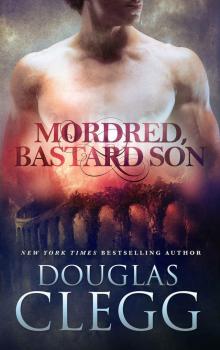 Mordred, Bastard Son
Mordred, Bastard Son Harrow: Three Novels (Nightmare House, Mischief, The Infinite)
Harrow: Three Novels (Nightmare House, Mischief, The Infinite)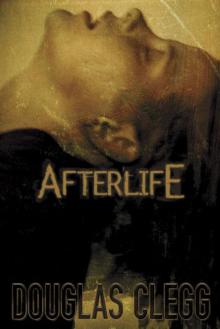 Afterlife
Afterlife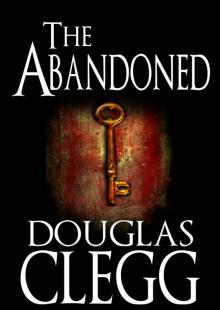 The Abandoned - A Horror Novel (Thriller, Supernatural), #4 of Harrow (The Harrow Haunting Series)
The Abandoned - A Horror Novel (Thriller, Supernatural), #4 of Harrow (The Harrow Haunting Series) The Queen of Wolves
The Queen of Wolves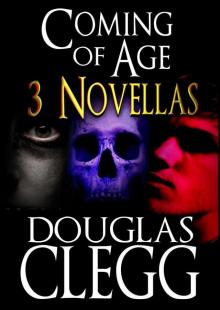 Coming of Age: Three Novellas (Dark Suspense, Gothic Thriller, Supernatural Horror)
Coming of Age: Three Novellas (Dark Suspense, Gothic Thriller, Supernatural Horror)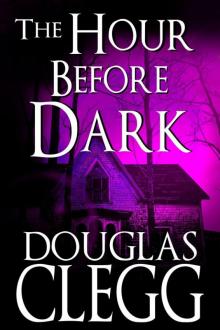 The Hour Before Dark
The Hour Before Dark Isis
Isis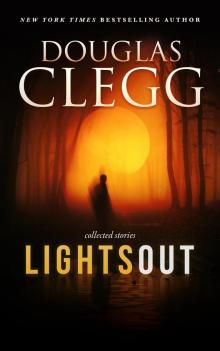 Lights Out
Lights Out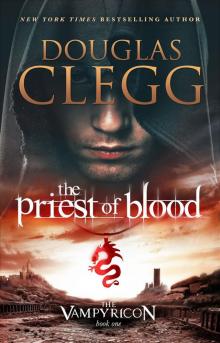 The Priest of Blood
The Priest of Blood Criminally Insane: The Series (Bad Karma, Red Angel, Night Cage Omnibus) (The Criminally Insane Series)
Criminally Insane: The Series (Bad Karma, Red Angel, Night Cage Omnibus) (The Criminally Insane Series) Halloween Candy
Halloween Candy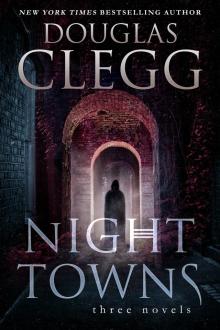 Nights Towns: Three Novels, a Box Set
Nights Towns: Three Novels, a Box Set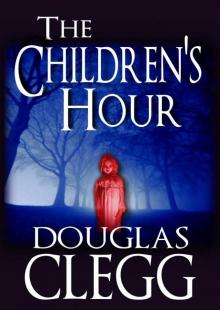 The Children's Hour - A Novel of Horror (Vampires, Supernatural Thriller)
The Children's Hour - A Novel of Horror (Vampires, Supernatural Thriller)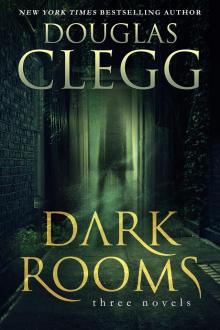 Dark Rooms: Three Novels
Dark Rooms: Three Novels![[Criminally Insane 01.0] Bad Karma Read online](http://i1.bookreadfree.com/i2/04/10/criminally_insane_01_0_bad_karma_preview.jpg) [Criminally Insane 01.0] Bad Karma
[Criminally Insane 01.0] Bad Karma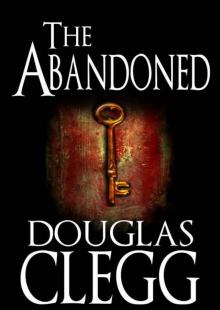 The Abandoned - A Horror Novel (Horror, Thriller, Supernatural) (The Harrow Haunting Series)
The Abandoned - A Horror Novel (Horror, Thriller, Supernatural) (The Harrow Haunting Series)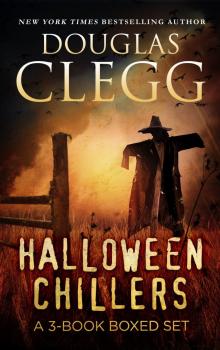 Halloween Chillers: A Box Set of Three Books of Horror & Suspense
Halloween Chillers: A Box Set of Three Books of Horror & Suspense